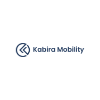RELATED RECENT PLACEMENTS
Anupama Yeragudipati
Kabira Mobility
Gurunanak Khalsa College


Arun Kumar
Riverstone
Anna University

Paul Willington
DGS Technical Services Pvt. Ltd.
SAVEETHA SCHOOL OF ENGINEERING ,CHENNAI

IVIN TROY
Kabira Mobility
College of Engineering and Management,Punnapra

Karuthapandi K
DGS Technical Services Pvt. Ltd.
S. Veerasamy Chettiar college of engineering and technology

Gowsikraj M
Hyundai Motor India Ltd
Sri krishna college of technology


Mujahidoddin Saudagar
Hyundai Motor India Ltd
G.H Raisoni college of engineering and management Amravati


Krutika Ravikumar
Genpact
R.V.College of Engineering
Syllabus
This course is full of best-in-class content by leading faculty and industry experts in the form of videos and projects
Course Overview
- The students will gain a thorough knowledge of the Control Systems Fundamentals.
- During the coursework, the students will learn the following concepts:
- Building Blocks of Control Theory
- Time and Frequency Domain Modelling and Design
- Transfer Function, State-space, Root-locus, Bode Plots, Nyquist Plots
- Time Response, Frequency Response, Steady-state Error Analysis.
- Also, they will learn about Digital Control Systems.
- The course will give an overview of the software tools such as MATLAB and Simulink which are widely used in the industry.
- The students are exposed to the modern trends and standard practices being followed in the industry right now.
- This course forms the foundation for anyone wanting to pursue a career in this domain.
Course Syllabus
On a daily basis we talk to companies in the likes of Tata Elxsi and Mahindra to fine tune our curriculum.
Week 01 - Introduction to Modelling Techniques - Part I
- Introduction and Preliminaries
- Control Systems
- Modeling a Physical System
- Laplace Transform
- Control System Design
- Types of Control Strategies
Week 02 - Introduction to Modelling Techniques - Part II
- Modeling Techniques: Nonlinearities and Control
- Mathematical Modelling of Systems
- Mechanical
- Electrical
- Fluid system
- Thermal system
- Nonlinearities
- Effects of Nonlinearities
- Linearization
Week 03 - System Analysis - Part I
- System Analysis: Model Reductions
- Block Diagrams
- Signal-Flow Graphs (SFGs)
- Mason’s Rule
- SFGs of Differential Equations
Week 04 - System Analysis - Part II
- System Analysis: Fundamental Elements
- Poles, Zeros, and System Response
- First-Order Systems
- Second-Order Systems
- Higher-Order Systems
- System Response with Zeros
- Analysis of Block Diagrams
- Modifying the System Response
Week 05 - System Analysis - Part III
- System Analysis: Stability
- Routh-Hurwitz Criterion
- Special Cases of Routh-Hurwitz Criterion
- Steady-State Errors for Unity Feedback Systems
- Static Error Constants and System Type
- Steady-State Errors for Non-Unity Feedback Systems
- Sensitivity
Week 06 - System Analysis - Part IV
System analysis: Root locus
- Definition of Root Locus
- Conditions of Root Locus
- Sketching the Root Locus – Part I
- Sketching the Root Locus – Part II
- Pole Sensitivity
Week 07 - Design Techniques - Part I
- Design Techniques: Bode and Nyquist Plots
- Bode Plots
- Gain Margin and Phase Margin
- Polar Plots
- Nyquist Plots
- Stability Analysis using Nyquist Plots
Week 08 - Design Techniques - Part II
- Design Techniques: Compensators - Part I
- Automatic Control Systems
- PID Controller Design using Ziegler-Nichols Rules
- Lag Compensation
- Lead Compensation
- Lag-Lead Compensation
- Computer-Based Design
- Physical Realization of Compensation
- Systems with Time-Delay
Week 09 - Design techniques – Part III
Week 10 - State-Space representation - Modelling and analysis
- State-Space Representation: Modelling and Analysis
- State-Space Representation
- State-Space to Transfer Functions
- Transfer Functions to State-Space
- Alternative Representations in State-Space
- Controllability
- Observability
- Stability in State-Space
Week 11 - State-Space representation - Design
- State-Space Representation: Design
- Similarity Transformations
- Controller Design
- Alternative Approaches to Controller Design
- Observer Design
- Alternative Approaches to Observer Design
Week 12 - Digital Control Systems and Future Scope
- Digital Control Systems and Future Scope
- Modeling the Digital Computer
- The Z-Transform
- Transfer Functions
- Stability
- Transformations
Our courses have been designed by industry experts to help students achieve their dream careers
Industry Projects
Our projects are designed by experts in the industry to reflect industry standards. By working through our projects, Learners will gain a practical understanding of what they will take on at a larger-scale in the industry. In total, there are 2 Projects that are available in this program.
Project Based on Transfer Function Relating Pitch Angle to Elevator Surface Angle for Unmanned Free-Swimming Submersible (UFSS) vehicle
Project Based on Unity Feedback Design of Hybrid Electric Vehicle (HEV)
Our courses have been designed by industry experts to help students achieve their dream careers
Ratings & Reviews by Learners
Skill-Lync has received honest feedback from our learners around the globe.

Flexible Pricing
Talk to our career counsellors to get flexible payment options.
INR 40,000
Inclusive of all charges
Become job ready with our comprehensive industry focused curriculum for freshers & early career professionals
1 Year Accessto Skill-Lync’s Learning Management System (LMS)
Personalized Pageto showcase Projects & Certifications
Live Individual & Group Sessionsto resolve queries, Discuss Progress and Study Plans.
Personalized & Hands-OnSupport over Mail, Telephone for Query Resolution & Overall Learner Progress.
Job-Oriented Industry Relevant Curriculumavailable at your fingertips curated by Global Industry Experts along with Live Sessions.
Find Automotive Systems and Controls using MATLAB/Simulink in other cities
Pune
Delhi
Hyderabad
Mumbai
Bangalore
Chennai
Similar Courses
Got more questions?
Talk to our Team Directly
Please fill in your number & an expert from our team will call you shortly.
